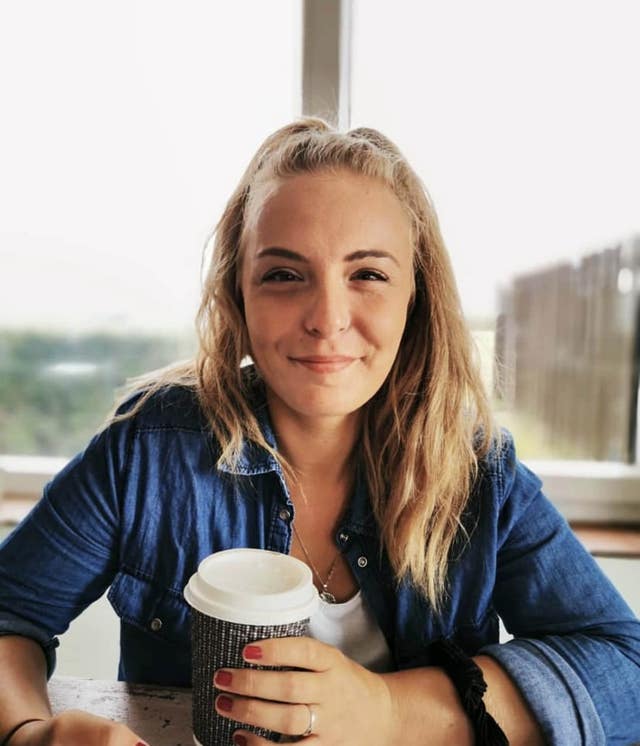Family of student nurse call for changes in A&E after natural death finding
Zoe Bell, 28, died on December 24 2022 after waiting 12 hours in A&E at Stoke Mandeville Hospital in Aylesbury, where she had been working shifts.

The family of a student nurse who died at a Buckinghamshire hospital from a “rare and complex” lung infection on Christmas Eve have said there were “clear failures” in her care, despite an inquest finding she died of natural causes.
Zoe Bell, 28, died on December 24 2022 after waiting 12 hours in A&E at Stoke Mandeville Hospital in Aylesbury, where she had been working.
Concluding an inquest into her death on Thursday, senior coroner Crispin Butler said the hospital had some “learning” to do from its role in the incident but that it did not negatively impact Ms Bell’s outcome.

There was also no log kept by hospital staff of Ms Bell’s condition between 11.34pm on December 23 and 10am on December 24.
Mr Butler ruled this did not “represent evidence of a systemic failure”, but rather reflected “the pressures during that shift” for the hospital’s staff.
The coroner said Ms Bell died “from a rare and complex lung infection … which was not, on balance of probabilities, treatable”.
In a statement given after the inquest, Ms Bell’s father Nick said: “Zoe was a beautiful and delicate young woman with so much potential, and her absence leaves a hole in our lives that can never be filled.
“But we hope Zoe’s legacy, the kindness and love that she showed others, will live on in those lives that she touched. We will forever cherish our memories of her and carry her in our hearts.
“It is a heartfelt wish that lessons can be learned from Zoe’s death and that changes are made to the way A&E departments are run, and the coroner has indicated that he will now take time to consider these.
“We want doctors to have great awareness of the symptoms of these infections in healthy young people, who can sometimes mask their symptoms. We want medics to take greater account of the concerns of patients and their families, who may be best placed to notice changes in their loved one’s condition.
“We want A&E units to examine patients more quickly and timely, for their symptoms be recognised and treated with more urgency. Now that the inquest process has concluded, it is difficult to comprehend that an otherwise healthy, 28-year-old who had flu can go to A&E with a serious viral infection and pass away within 20 hours.”
“The factual evidence that has come up (said) there were significant failures, failures in Zoe’s care, in the treatment of sepsis, which ultimately took her life while she was in the emergency department.
“I will counter that with the exceptional care that she got in ICU, because the doctors and nurses who allowed me to stand alongside them were working their hardest and trying their best to save Zoe’s life, and they were exceptional. But (there were) clear failures in Zoe’s care to identify that she was compensating.”
The coroner gave Ms Bell’s cause of death as staphylococcal aureus septicaemia and bronchopneumonia with acute lung failure, combined with influenza B.
There was no evidence of an underlying medical condition.
Andrew McLaren, chief medical officer at Buckinghamshire Healthcare NHS Trust, had earlier said at the inquest there were “a number of factors that contributed to the issues” the night Ms Bell died, including a lack of observations.
He told the inquest: “There were a number of interactions with Zoe which we accept were not fully documented.
“It wasn’t that nobody was coming to see her (Zoe), but they were making clinical decisions at the time that she was OK.”
Mr McLaren said there had been an “incredibly rapid deterioration” in Ms Bell’s condition after 8.30am on December 24 which surprised hospital doctors, who had said she seemed fine at that time.
He also said the hospital had been recognised as having “insufficient bed stock” but that numbers had now improved following the opening of a new hospital ward.
Ms Bell was taken into surgery at 3pm later that day and was pronounced dead at 6.45pm, family solicitors Leigh Day said.
Asked by counsel representing Ms Bell’s family what steps the trust had taken since her death, Mr McLaren said the hospital had stopped using agency staff and increased staffing numbers in the A&E department, and had increased the presence of senior medical doctors on the wards.
He told the inquest the working environment had “changed considerably”, including the department team now having “huddles” every two hours and encouraging reviews of sepsis documentation.
Ms Bell’s father, stepmother and stepbrother attended the inquest alongside several of her friends.
A picture of Ms Bell was displayed in a frame in the court during the hearing.
Mr Butler said during the hearing: “Nothing I say can diminish the loss of a previously young, healthy lady who aspired to a career in nursing to help others.”
Andrew McLaren, chief medical officer of Buckinghamshire Healthcare NHS Trust, said: “On behalf of the Trust I would like to express my heartfelt personal condolences to Zoe’s family, friends, and colleagues for their tragic loss.
“The Trust is grateful for the detailed investigation conducted by the Coroner which has identified a number of learning points, which the Trust has taken on board and has been addressing.
“It is noted that the Coroner concluded that, sadly, there was not an opportunity to provide any care following Zoe’s admission to hospital which would have avoided her decline, and she died of natural causes from a rare combination of infections.”





